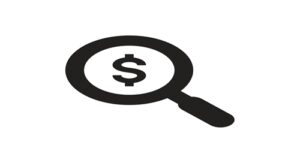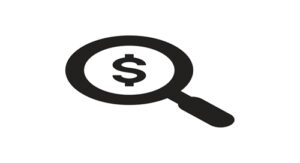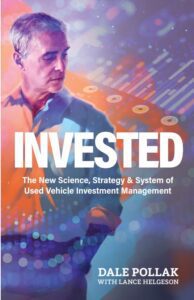Last week, I shared a post that outlined a somewhat odd moment in the used vehicle market, wherein wholesale values have risen steadily for the past two-plus  months while retail prices have declined. It’s an odd moment in the market because you’d normally expect to see retail prices follow the trendline of wholesale values in roughly similar fashion.
months while retail prices have declined. It’s an odd moment in the market because you’d normally expect to see retail prices follow the trendline of wholesale values in roughly similar fashion.
Since last week, though, we saw retail asking prices for used vehicles rise ever so slightly, to the tune of one-tenth of a percent. This rise begs a question: Does it mark the start of retail price appreciation?
The answer is a firm “maybe, but wait.”
On the “maybe”: The slight rise in retail prices could signal that dealers are now accounting for the rising wholesale costs they’ve been paying for vehicles, particularly for one to three-year-old units, where recent wholesale value appreciation has been steepest due to reduced supply and resilient retail demand. Such a dealer response is exactly what you’d expect.
On the “but wait”: Analysts or observers, including me, don’t think retail price appreciation, if it continues, will be as significant as the wholesale value appreciation we’ve recently seen. Why? The main reason is that the current new vehicle market is effectively keeping a lid on how high retail prices for used vehicles might go.
If we flash back to 2021 and 2022, when retail prices appreciated 30 percent to 40 percent overall, there weren’t many new vehicles available in the market. The absence of those vehicles buoyed new vehicle prices and effectively offered clear sailing for dealers to price used vehicles as high as they wanted.
Today, it’s a far different story in the new vehicle market. Incentives have been growing with days supply, and transaction prices have been on the decline for much of the year. These trends put downward pressure on retail asking prices for used vehicles.
Here’s how a Southeast dealer summed the situation: “While we are certainly seeing the rise on the wholesale side, I don’t think we will see an equal increase on the retail side. With new car inventory where it’s at, and OEMs increasing incentives each month, the pre-owned market will need to keep separation from the new car transaction number. Meaning, used car prices cannot rise at the same level because if they do, they’ll get too close to new car numbers and then no one buys used cars. Dealers know this, so we aren’t seeing the adjustment on the retail side. We are just seeing margin compression.”
The dealer went a step further. He used ProfitTime GPS to analyze recent pricing trends of roughly 50 random one-to-three-year-old vehicles of various brands in two states. His take: “The result was inconclusive. It was pretty evenly split, where some went up in recommended price while others went down. I really couldn’t even find a pattern like some brands went up while others went down.”
To me, the dealer’s findings and perspective affirm two take-aways:
The first take-away is that margin compression in used vehicles is back. The typical relationship between wholesale values and retail prices appears to be challenged by current conditions. Looking ahead, it’s reasonable to expect wholesale values, particularly on near-new vehicles, will continue to appreciate. In turn, retail prices may rise, but the increase won’t be as significant as historical trends suggest it could or should be.
The second take-away is that, as margin compression continues, it’ll be incumbent on dealers to have a clear understanding of how to properly acquire and price every used vehicle. As the dealer’s findings affirm, the movement of retail prices in today’s used vehicle market isn’t monolithic. Rather, it happens on a car-by-car basis. Therefore, if you’re not acquiring and pricing your used vehicles with a clear understanding of each unit’s unique profile of investment opportunity and risk, you’re far more likely to under- or over-price a vehicle, which leads to a sub-optimal ROI outcome.
The post Why Retail Used Vehicle Prices Won’t Rise Like Wholesale Values appeared first on Dale Pollak.





